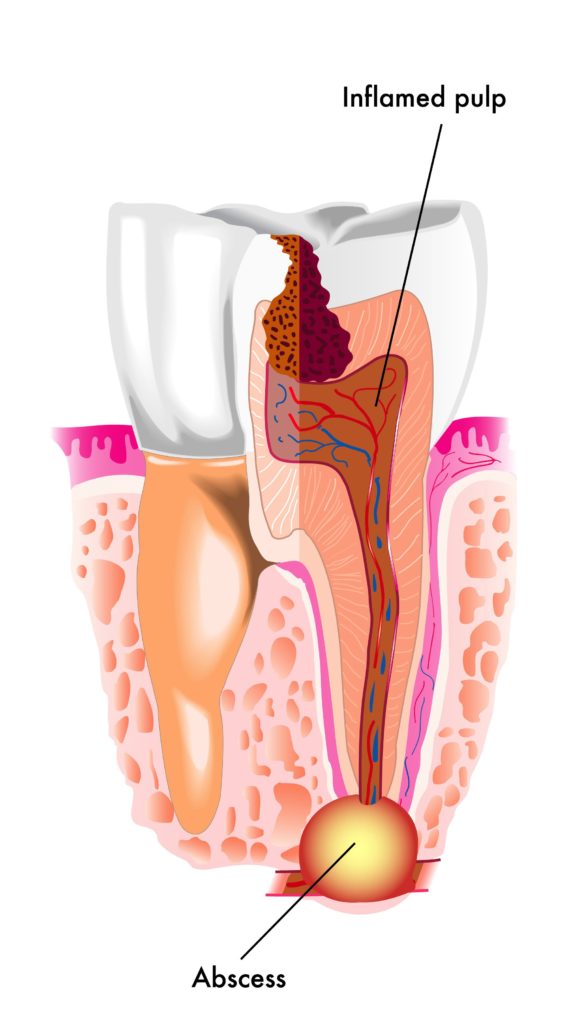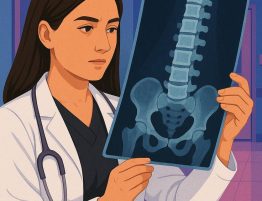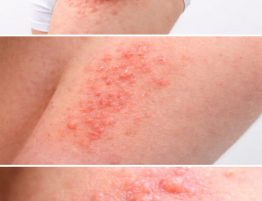
A dental abscess is a collection of pus that can form inside the teeth, in the gums or in the bone that holds the teeth in place. It’s caused by a bacterial infection.
Bacteria exist in plaque, a by-product of food, saliva, and bacteria in the mouth, which sticks to the teeth and damages them and the gums. If the plaque is not removed by regular and proper brushing and flossing, the bacteria may spread inside the soft tissue of the tooth or gums. This can eventually result in an abscess.
Signs and Symptoms
- Pain in the affected area when biting or when touching the affected area
- Fever
- A foul taste in the mouth
- Sensitivity to cold or hot food and liquids
- Generally unwell feeling
- Insomnia
- Difficulties opening the mouth
The main symptom of a dental abscess is pain. This may be a throbbing pain and is often intense. The pain usually starts suddenly and becomes more intense over the following hours or days. In some cases, the pain may radiate to the ear, jawbone, and neck.
Types
The different types of dental abscess depend on location.
The three most common types are:
- Periapical Abscess – this is an abscess at the tip of a tooth’s root.
- Periodontal Abscess – this is an abscess on the gum next to the root of a tooth. It might also spread to the surrounding tissue and bone.
- Gingival Abscess – this is an abscess on the gums.
Treatment
Treatment for an abscessed tooth focuses on clearing up the infection and relieving pain. Depending on the symptoms, the dentist might start with a dental X-ray. This will help them see whether the infection has spread to other areas.
Depending on the type and severity of the abscess, treatment options include:
- A root canal procedure – a root canal involves drilling into the affected tooth to drain the abscess and remove any infected pulp.
- Draining the abscess – the dentist will make a small cut in the abscess to drain the pus, followed by cleaning the area with a saline solution.
- Antibiotics – if the infection has spread beyond the abscessed area or the person has a weakened immune system, the dentist might prescribe oral antibiotics to help clear the infection.
- Tooth extraction – if the tooth is too damaged, the dentist might remove it before draining the abscess.
- Removal of foreign objects – if the abscess is caused by a foreign object in the gums, the dentist will remove it.
It’s important to have any abscessed tooth treated by a dentist. Even if it’s already ruptured, you’ll want to have the area examined and cleaned by your doctor to make sure the infection doesn’t spread.
What We Offer
We at Almurshidi Medical Tourism will find the best doctors to cater to your needs. We are partnered with a wide network of hospitals and clinics that provide top quality medical experience.
We provide free medical estimates, make medical appointments, and provide several medical opinions if needed at no cost.
Contact Us
For more information contact us at +66822004040 or via WhatsApp








